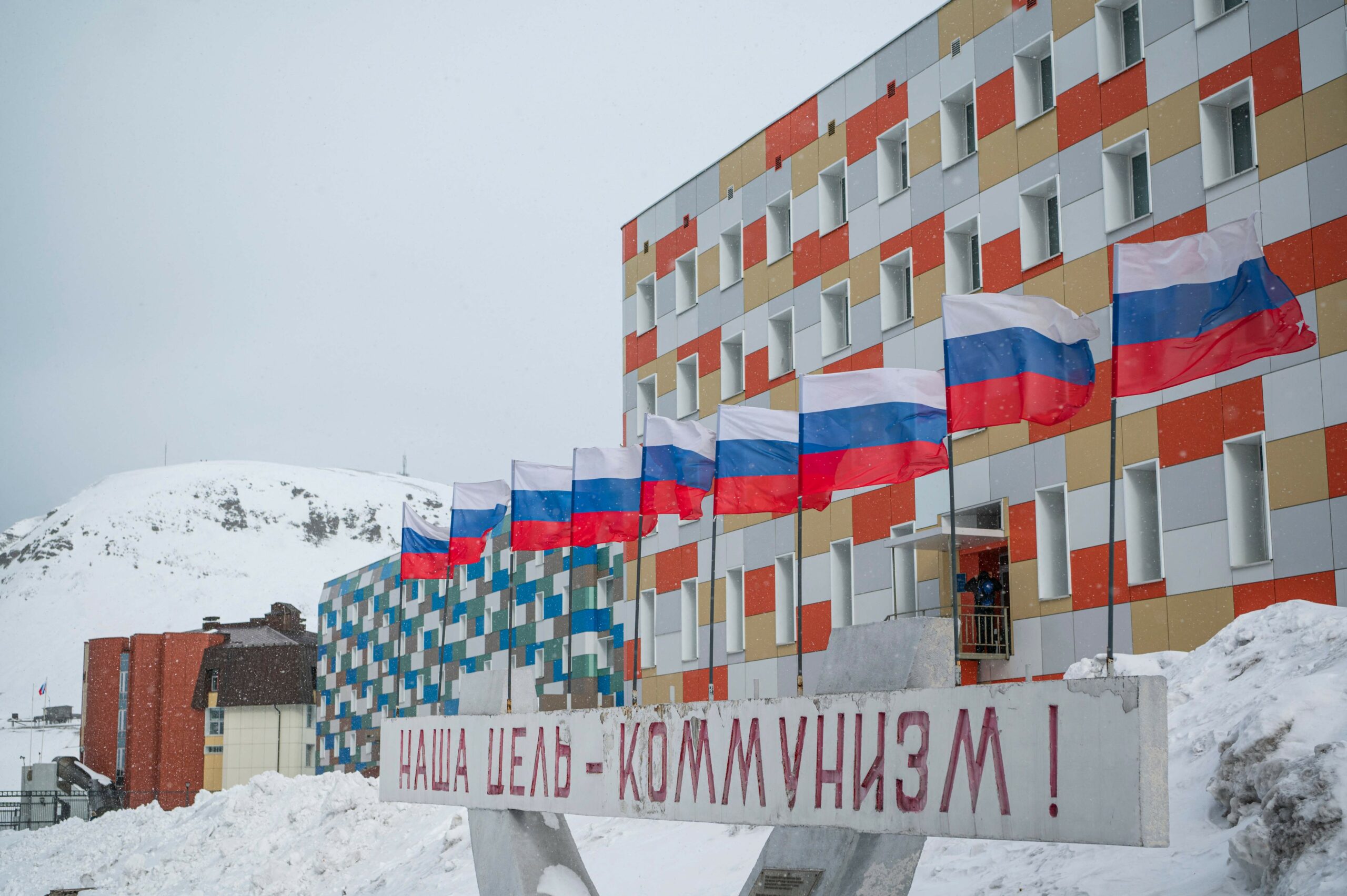The relationship between Russia and China in the Arctic is a component of the broader cooperation that has developed in recent years. Although their views and interests do not always align in the High North, the need for cooperation to achieve mutual benefits encourages them to manage their differences. While access to the Arctic’s sea routes and resources is a primary objective for Beijing, Moscow’s interests in the relationship are driven by the need for investment, technology, and markets to support the development of its economic projects in the region.
Amid Western sanctions following Russia’s invasion of Ukraine in 2014 and particularly in 2022, Moscow views China as a critical alternative to Western investment, technology, and markets for its Arctic projects, as well as a partner for security objectives to counterbalance the West. Previously, Russia supported the prerogative rights of Arctic coastal states and was openly opposed to increasing the involvement of non-Arctic countries in the region. However, Russia now relies on investments, technology, and markets from non 234 PRC-owned companies registered to operate in Russia’s Arctic territories, an 87 percent increase compared to the two full years from 2020 to 2021.
For China, cooperation with Russia in the Arctic is driven by geoeconomic considerations, including access to the Northern Sea Route (NSR), resources, and opportunities to test and improve technologies for extreme weather conditions. Geopolitically, Beijing seeks an alternative sea route to the European Union to reduce its dependency on the Strait of Malacca, which could be disrupted by India—China’s main regional competitor—in the event of a military conflict, or due to uncertainties in the Suez Canal. Additionally, China has research interests in the Arctic’s environmental changes due to climate change. Conducting joint research with Russia and other Arctic countries is particularly important for Beijing, as it strengthens China’s involvement in the region. From Russia’s perspective, Chinese academic institutions offer substantial expertise in permafrost engineering, cultivated due to its relevance to areas like the Tibetan Plateau.
However, Russia is concerned that China’s interest in Arctic resources and the NSR could lead to a Chinese monopoly over the route, potentially reducing transportation costs for China while disadvantaging competitors, including Russia. Russia also worries about China’s compliance with environmental standards in resource extraction, which is critical for the fragile Arctic ecosystem. Since 2014, China has capitalized on the confrontation between Russia and the West, including most Western Arctic states, by offering geopolitical, economic, and technological support in exchange for access to resources and transport corridors.
Economic Projects
LNG
In the 2010s, Russia and China achieved a balance in their cooperation on Arctic energy projects. China gained a new source of natural gas and its first major sales of Arctic technologies, while Russia accessed a share of China’s vast LNG market. At the same time, Moscow has sought to balance its dependency on Beijing by attracting other foreign partners and pursuing import substitution. Although this model of cooperation has faced challenges since 2022, it is likely to flourish after the war ends. Since February 2022, Russia has partially succeeded in rerouting Arctic oil to China and India. While Russia exported approximately 400,000 barrels of crude oil to Northern Europe in February 2022, this figure dropped to zero by December 2022, with exports to Asia reaching 300,000 barrels per day.
Moreover, after the war began, China exported technologies for Russian Arctic LNG projects. However, sanctions on Russian LNG projects under construction have made Chinese companies cautious about continuing cooperation. Nevertheless, Russia’s LNG supplies to China in 2024 increased by 3.3%, reaching 8.3 million tons, although the cost of imports decreased by 3.5% to $ 4.99 billion. Beijing plans to increase LNG purchases from Russia in 2025.
The NSR
Russia-China cooperation on the Northern Sea Route has experienced ups and downs in recent years. In 2003, Russia rejected Chinese research vessels seeking to enter Russia’s Exclusive Economic Zone (EEZ) during China’s second Arctic expedition. In 2012, Russia prohibited the Chinese research icebreaker Xue Long from conducting maritime research along the NSR during China’s fifth Arctic expedition, forcing China to suspend all research activities. However, in 2023, Chinese scientists aboard the polar icebreaker Xue Long 2, as part of the 13th Arctic expedition, completed research in collaboration with Russian specialists.
While Beijing seeks to harmonize approaches to Arctic maritime management, Moscow is concerned that China is pushing for the «maximum internationalization» of the Arctic, which conflicts with Russia’s interests. After the war began, the two countries established a joint council to manage the NSR. In April 2023, they signed a Memorandum of Understanding on Strengthening Law Enforcement Cooperation at Sea between the Russian FSB and the Chinese Maritime Police Department. In May 2024, Presidents Putin and Xi Jinping agreed to create a sub-commission on the Development of the Northern Sea Route to promote mutually beneficial cooperation in Arctic development and use. Key areas of joint projects include navigation safety, planning, increasing cargo traffic along the NSR, developing logistics routes, and exchanging information on ice, meteorological, and other conditions.
In 2023, transit along the NSR between Russia and China amounted to 2 million tons, with plans to increase this to 50 million tons by 2030. Moscow also aims to engage Chinese companies in infrastructure projects along the NSR. In 2024, 21.86 million tons of liquefied natural gas (LNG) were transported along the NSR, accounting for 57.69% of the total cargo volume, with crude oil comprising 21.37%. However, imported cargo via the NSR represented only 0.5% of its load. The volume of imported cargo increased from 94,000 tons in 2023 to 191,000 tons in 2024, shipped from Chinese ports to Russian destinations such as Sabetta, Pevek, Murmansk, Arkhangelsk, St. Petersburg, and Ust-Luga. In 2024, Chinese shipping companies nearly doubled their voyages along the NSR.
In 2024, Rosatom and Hainan Yangpu NewNew Shipping Co. Ltd. signed an agreement to create a joint venture for designing and constructing high ice-class container ships and operating a year-round container line along the NSR between Russian and Chinese ports. NewNew Shipping Line and Rosatom also announced plans to begin year-round transportation along the NSR by 2027. In contrast, in 2021, the Russian Ministry of Industry and Trade opposed joint production of icebreakers and the transfer of design documentation to China, citing competition in Arctic developments. Chinese operations drove a tenfold increase in containerized cargo volume at the port in 2024.
Beyond resources and the NSR, China is interested in strategic infrastructure projects such as the Arkhangelsk deep-water port and the Belkomur railway. However, these projects have not been realized, at least officially, due to Moscow’s reluctance to allow foreign companies, including Chinese ones, to participate in or own strategic Arctic infrastructure.
Military Cooperation
To date, cooperation on Arctic Ocean maritime security between the Russian and Chinese navies has not reached an advanced level. Although they conduct joint drills in and around Arctic waters, their primary focus remains the Pacific Ocean, where they have held joint naval exercises, air patrols, and sea patrols. However, the melting Arctic ice is increasing the interdependence between the Pacific and Arctic strategic spaces. Since 2022, joint drills have also occurred in Arctic waters, with increased air and sea activities in and around the Bering Sea. The Bering Strait, a strategic connection between the two oceans, plays a vital role in the NSR’s link to the Pacific.
In 2024, Russia and China conducted several joint exercises in or near the Arctic Ocean. They carried out drills in the Pacific and Arctic Oceans as part of the Okean-2024 exercises. Additionally, the Beibu/Interaction-2024 naval exercises took place in the Okhotsk and Japan Seas. These developments have raised significant concerns in Washington.
International Governance vs. Sovereign Rights of Coastal Countries?
As a non-Arctic power, China primarily supports the internationalization of Arctic governance. However, it is not alone in this stance; its competitor, India, also views the Arctic as a «common heritage of mankind» and seeks strategic positioning for future resource exploitation and shipping accessibility. The United Nations Convention on the Law of the Sea (UNCLOS) recognizes the «common heritage of mankind» as applying to the seabed, ocean floor, and subsoil beyond national jurisdiction, while also affirming the sovereign rights of coastal states over their exclusive economic zones (EEZs). Assessments indicate that most Arctic oil and gas deposits lie within the EEZs of coastal states.
China acknowledges the sovereign rights of coastal countries to resources on their continental shelves and seeks to increase cooperation with these states to access resources in their EEZs. Officially, Beijing emphasizes compliance with international rules and does not challenge the sovereign rights of coastal states. As such, Moscow’s concerns about growing Chinese involvement in its EEZ appear manageable. While China lacks the capacity to fundamentally alter Arctic legal regimes, it can influence specific rules, such as those related to Arctic Ocean management and scientific cooperation.
Conclusion
Given the security-focused mindset of Russia’s foreign policy elite, it is likely that Russia will maintain cautious approaches toward the increasing roles of non-Arctic powers in the Arctic under any international relations scenario. Moreover, China is keen to avoid deteriorating relations with other Arctic countries, particularly amid discussions in Washington about the possibility of thawing U.S.-Russia relations.
Cooperation with China on LNG projects appears to have long-term potential, even if relations between Russia and the U.S. or the EU normalize. With the United States increasing shale gas production and aiming to expand exports to the EU, Russia’s cooperation with China in Arctic LNG production and marketing offers opportunities to diversify LNG supplies for the long term, potentially strengthening Russia’s position in the global energy market. Russia is unlikely to relinquish such a significant energy market as China, especially given the anticipated competition with other major LNG producers, including the United States.
To reduce or halt joint military activities with China in the Arctic, particularly near U.S. waters, could be a key issue Moscow might leverage in negotiations with Washington. However, increasing joint military activities with China in the Arctic has never been a priority for Moscow; rather, it is a means to deter, challenge, or unsettle a common adversary, the United States. At the same time, Moscow is wary of allowing China to establish a military presence in the High North.
Although confrontation with the U.S. has been a primary driver of Russia-China cooperation in the Arctic, shared geoeconomic interests also foster convergence. Moscow would welcome cooperation with the West if it successfully normalizes relations with Washington, but it is also keen to balance its relations among major powers in the international system. The sanctions imposed since 2014, following the invasion of Ukraine, have taught Moscow not to rely solely on one partner. In an optimistic scenario for the United States, Russia-China relations may revert to their pre-2022 invasion levels, but they are unlikely to return to pre-2014 levels. Such a scenario would depend on Moscow achieving its objectives in negotiations with Washington over Ukraine and possibly other international issues of concern to the Kremlin. However, whether this would serve U.S. long-term interests is a separate question that requires further consideration.
Please note that the views expressed in this publication are solely those of the author and do not reflect the official stance of the College of Europe










